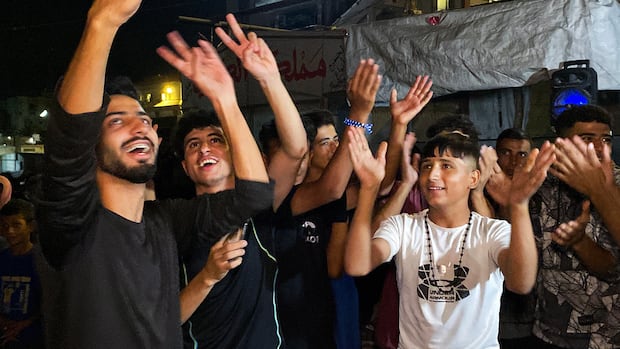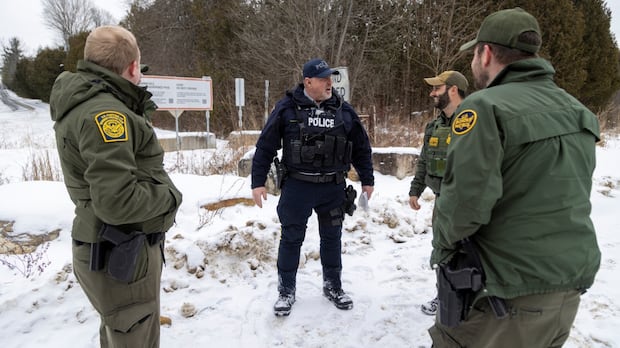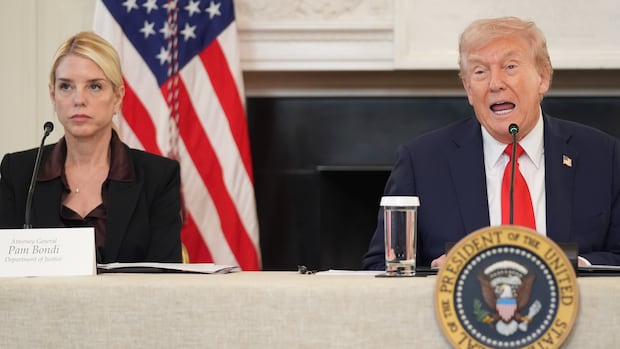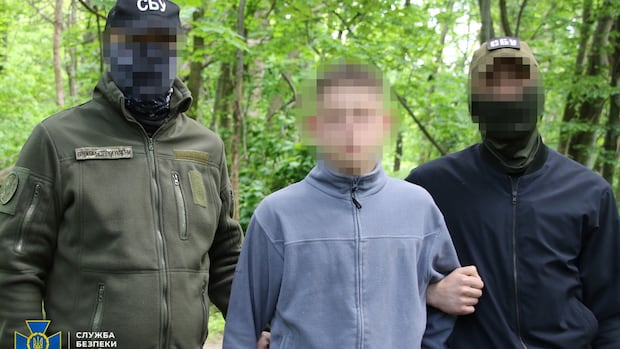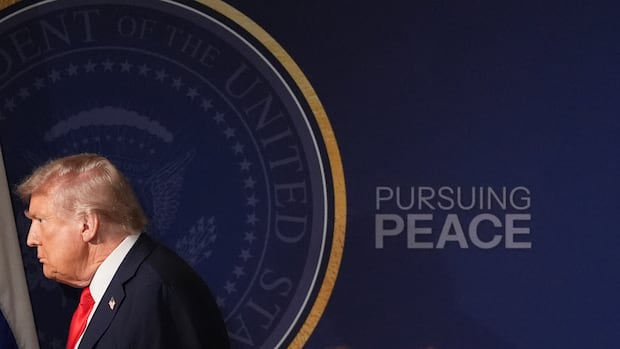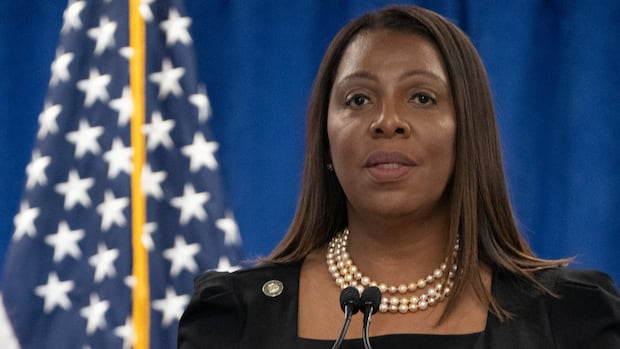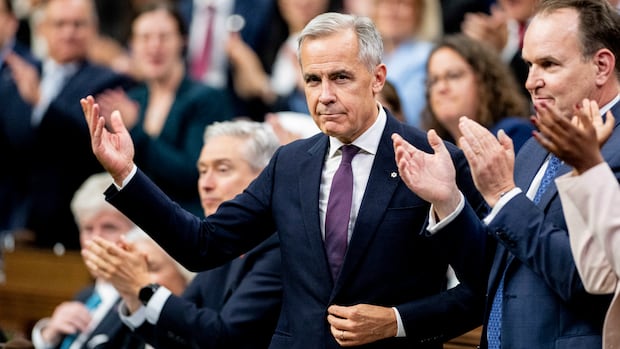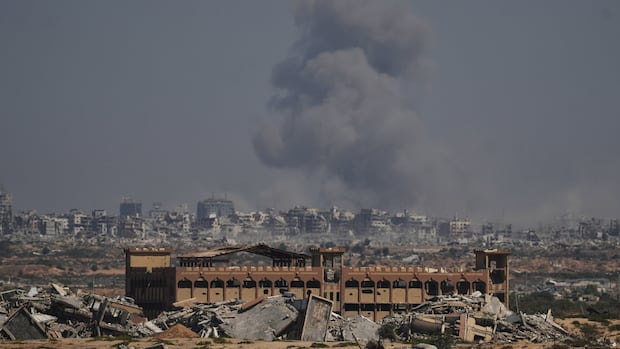Israel and Hamas have signed off on the first phase of the U.S.-proposed Gaza peace deal, allowing the release of all Israeli hostages, U.S. President Donald Trump said Wednesday.
The deal, if implemented, would bring the two sides closer than any previous effort to halt a war that has evolved into a regional conflict, drawing in countries such as Iran, Yemen and Lebanon, and reshaping the Middle East.
The agreement means all hostages "will be released very soon," Trump wrote on social media.
Israeli Prime Minister Benjamin Netanyahu said he would convene the government on Thursday to approve the ceasefire agreement.
"With God's help we will bring them all home," he said of the hostages, calling it a "great day for Israel."
A senior White House official told The Associated Press that once the deal is approved, Israeli forces will begin withdrawing to the agreed-upon boundary. That should take less than 24 hours, according to the official, who spoke on condition of anonymity to discuss planning.
Hamas then has 72 hours to release the hostages, which the White House believes will begin on Monday, the official said.
The deal comes on the heels of the two-year-anniversary of the Oct. 7, 2023, Hamas-led attacks on Israel, which ignited the two-year-long war in Gaza, killing more than 67,000 Palestinians, according to Gaza's Health Ministry. Hamas militants killed some 1,200 people that day, while 251 others were abducted, according to Israeli tallies.
WATCH | What's next for the peace deal:U.S. President Donald Trump announced Israel and Hamas have signed off on the first phase of his proposed plan for a Gaza peace deal, which would see the release of all Israeli hostages and an end to the war.Hamas called on Trump and guarantor states to ensure that Israel fully implements the ceasefire.
"We highly appreciate the efforts of our brothers and mediators in Qatar, Egypt, and Turkey, and we also value the efforts of U.S. President Donald Trump aimed at ending the war completely and achieving a full withdrawal of the occupation from the Gaza Strip," the militant group said in a statement.
Netanyahu, Trump speak by phoneSuccessful completion of the deal would mark the biggest foreign policy achievement so far for Trump, who took office in January promising to quickly end the wars in Gaza and Ukraine, only to be confronted with obstacles and complexities he had apparently not foreseen.
Netanyahu's office reported that he and Trump spoke shortly after the deal was announced and that the Israeli prime minister invited Trump to address the Knesset, Israel's parliament.
"I thank from the bottom of my heart President Trump and his team for their dedication to this sacred mission of freeing our hostages," he said.
Prime Minister Mark Carney congratulated Trump on social media and thanked Qatar, Egypt and Turkey for their roles in the negotiations.
" I am relieved that the hostages will soon be reunited with their families," he wrote. "After years of intense suffering, peace finally feels attainable."
Earlier Wednesday, Turkish Foreign Affairs Minister Hakan Fidan said negotiations to stop the war had made "a lot of headway," after Hamas handed over lists of its hostages and Palestinian prisoners it wants exchanged in a swap.
That list was expected to include some of the most prominent prisoners ever jailed by Israel, whose release had been off-limits in previous ceasefires.
According to a Palestinian source close to the talks, it includes Marwan al-Barghouti, a leader of the Fatah movement, and Ahmed Saadat, head of the Popular Front for the Liberation of Palestine. Both are serving multiple life sentences for involvement in attacks that killed Israelis.
Last week, the White House unveiled a 20-point document that called for an immediate ceasefire, an exchange of hostages held by Hamas for Palestinian prisoners held by Israel, a staged Israeli withdrawal from Gaza, Hamas disarmament and a transitional government led by an international body.
Hamas has so far refused to discuss Israel's demand that the militant group give up its arms, which the Palestinian source said Hamas would reject as long as Israeli troops occupy Palestinian land.
Forty-eight hostages are still held in Gaza — about 20 are believed to be alive, according to Israel.
WATCH | Why this deal could be different:Israel and Hamas have agreed to the first phase of a U.S. plan to end the war in Gaza. Janice Stein from the University of Toronto's Munk School of Global Affairs & Public Policy joins The National to discuss why this deal could lead to a lasting end to the conflict where previous ceasefires have broken down.The U.S.- and Israel-backed Gaza Humanitarian Foundation, which has been delivering food and aid to people in Gaza, welcomed the deal.
"We are hopeful that this will create conditions on the ground that enable the needs of all Gazans to be met," it said in a statement.
The secretary general of the United Nations also welcomed the deal, urging "all concerned to abide fully by the terms of the agreement" and pledging to increase humanitarian relief.
"The UN will support the full implementation of the agreement & will scale up the delivery of sustained & principled humanitarian relief, and we will advance recovery & reconstruction efforts in Gaza," António Guterres wrote.
Previous ceasefires failedMany elements of Trump's plan have been included in numerous ceasefire proposals previously backed by the U.S., including some that have been accepted and then subsequently rejected at various stages by both Israel and Hamas.
One of the biggest sticking points has been pressure on Hamas to disarm.
The proposal sees Israel making few concessions in the near term and does not lay out a clear path to a Palestinian state, one of the key demands of not only Hamas but also the Arab and Muslim world.
It also states that Israel would eventually withdraw from Gaza but does not define a time frame. Hamas has long demanded that Israel must fully withdraw from Gaza for the war to end.
WATCH | Hamas hands over list:Hamas has handed over lists of its hostages and Palestinian prisoners it wants exchanged in a swap, and the militant group said it was optimistic about negotiations to end the war in Gaza.The last ceasefire, which lasted less than six weeks between January and March, fell apart after Netanyahu decided he would not proceed to the second and third stages of the proposed deal.
Several months after an Israeli-imposed 11-week complete blockade on humanitarian aid, an analysis by the Integrated Food Security Phase Classification (IPC) in August found that more than half a million people in Gaza were trapped in famine, marked by widespread starvation, destitution and preventable death.
Last month, the United Nations Commission of Inquiry on the Occupied Palestinian Territory cited the scale of the killings as one of the acts backing up its finding that Israel has committed genocide in the territory. A number of other human rights groups came to the same determination prior to the UN.


